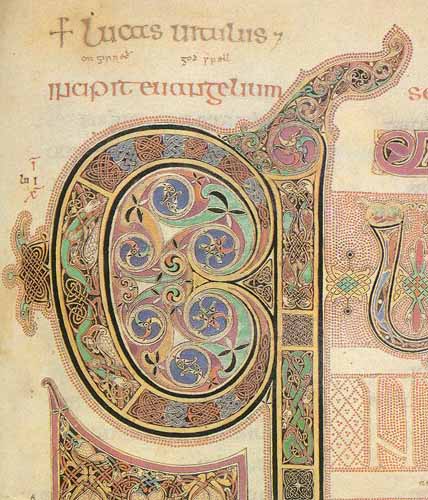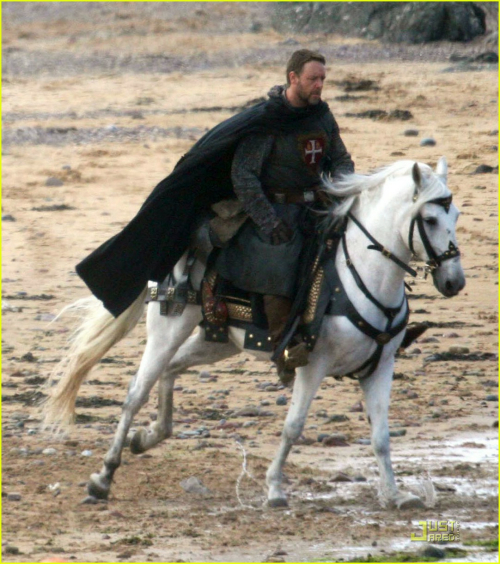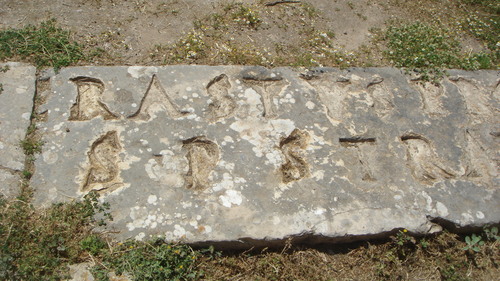CHAPTER THIRTY FOUR: THE DEMISE OF THE SON OF MAN
As the Roman soldiers led Jesus away, they seized Simon from Cyrene (a Roman colony on the north coast of Africa). Simon was a Diaspora Jew on his way to the festival, coming in from the hill country where he had spent the night, having only arrived on the coast of Judea the previous day. He was on the way to purchase his lamb for his family’s celebration of Passover, but the authorities requisitioned him, putting the crossbeam on his shoulders and made him carry it behind Jesus.
A large number of people followed him, including women who mourned and wailed for him, women who were friends of Miryam and Martha and had been present when Jesus raised Eliezer. Jesus turned and said to them, “Daughters of Jerusalem, do not weep for me; weep for yourselves and for your children. For the time will come when you will say, ‘Blessed are the barren women, the wombs that never bore and the breasts that never nursed!’ Then ” ‘they will say to the mountains, “Fall on us!” and to the hills, “Cover us!” ‘ For if men do these things when the tree is green, what will happen when it is dry?”
Two other men, both revolutionaries, were also led out with Jesus to be executed. When they came to the place called Golgotha, the Place of the Skull (so called because of the shape of the rock outcropping on this hill), there they crucified him, along with the revolutionaries–one on his right, the other on his left.
One soldier offered Jesus wine mixed with myrrh in order to lessen the pain, but he did not take it. Dividing up his clothes, the soldiers cast lots to see what each would get. It was about the third hour, or nine in the morning when they crucified him. Pilate had a notice of the crime charged, a ‘titulus’, prepared and fastened to the top of the cross. It did not read ‘Jesus of Netzerit–mashiach/christos/christus. Rather it read ‘JESUS OF NETZERIT, THE KING OF THE JEWS’ in three languages–Aramaic, Greek, and Latin. Many of the Jewish officials, who were literate, read this sign, for the place where Jesus was crucified was near the city, and the sign was written in Aramaic, Latin and Greek. The chief priests protested to Pilate, “Do not write ‘The King of the Jews,’ but that this man claimed to be king of the Jews.”
Pilate retorted with a sneer, “What I have written, I have written.”
Those who passed by hurled insults at Jesus, shaking their heads and saying, “So! You who are going to destroy the temple and build it in three days, come down from the cross and save yourself!”
In the same way some of the chief priests and the teachers of the law mocked him among themselves. “He saved others,” they said, “but he can’t save himself! Let this so-called messiah, this King of Israel, come down now from the cross, that we may see and believe.”
One of those crucified with him also heaped insults on him, but the other revolutionary objected. “Don’t you fear G-d,” he said, “since you are under the same sentence of death? We are punished justly, for we are getting what our deeds deserve. But this man has done nothing wrong.” Then he said, “Jesus, remember me when you come into your kingdom.” Jesus answered him, “Amen I say to you, today you will be with me in paradise.” He was speaking of the highest level in heaven.
At the sixth hour, or noon, darkness came over the whole land until the ninth hour. And at the ninth hour Jesus cried out in a loud voice, “Eloi, Eloi, lama sabachthani?”–which means, “My God, my God, why have you forsaken me?” When some of those standing near heard this, they said, “Listen, he’s calling Elijah.” One man ran, filled a sponge with wine vinegar, put it on a stick, and offered it to Jesus to drink. “Now leave him alone. Let’s see if Elijah comes to take him down,” he said.
No one came to take Jesus down and in due course, looking at the soldiers standing guard at the foot of the cross he said, “Father, forgive them, for they do not know what they are doing.”
It was at this juncture that some of Jesus’ family and disciples arrived, having heard the rumor late that morning that Jesus was being executed. None of the male disciples from Galilee showed up at all, but the female disciples, Miryam of Migdal, Joanna, Susanna and others were there standing near enough to hear what was happening. Summoning up his courage Eliezer, the Beloved Disciple was also present, and the female disciples had found Jesus’ mother with her sister and told her what was happening. The brothers of Jesus however were too ashamed of Jesus and too frightened to come watch the spectacle. Only Jesus’ mother and sister came.
By the ninth hour, near three in the afternoon with the sky overhead pitch black, near the cross of Jesus stood his mother, his mother’s sister, Miryam the wife of Clopas, and Miryam of Migdal. When Jesus saw his mother there, and the disciple whom he loved standing nearby, he said to his mother, “Woman, here is your son,” and to the disciple, “Here is your mother.” Thus Jesus honored and provided for his mother with nearly his last breath. From that time on, Eliezer took her into his home.
Over the hill, a violent wind came, and suddenly the curtain of the temple was torn in two from top to bottom. There was an enormous thunderclap and Jesus called out with a loud voice, “Father, into your hands I commit my spirit.” When he had said this, he breathed his last and just as he did so, a torrent of rain began to pelt down from the sky above, as was not uncommon during a Judean late spring day.
The centurion standing beneath the cross had marveled at the way Jesus had not railed against G-d or his tormentors, and felt led to say, “surely this man was a son of the gods, a righteous man.” When all the people who had gathered to witness this sight saw what took place, they beat their breasts and went away.
But all those who knew him, including the rest of the women who had followed him from Galilee, stood at a distance, watching these things and were quickly soaked to the bone. Because the Jewish authorities did not want the bodies left on the crosses during Shabbat much less during Passover, they asked Pilate to have the legs broken and the bodies taken down. The soldiers therefore came and broke the legs of the first man who had been crucified with Jesus, and then those of the other. But when they came to Jesus and found that he was already dead, they did not break his legs. Instead, one of the soldiers pierced Jesus’ side with a spear, bringing a sudden flow of blood and water. Eliezer, Jesus’ most beloved disciple, had stayed with Jesus’ mother to the end as she had refused to move until this point, and so he had witnessed all this himself.
CHAPTER THIRTY FIVE: A HASTY BURIAL
In April in Judea sunset comes quickly at about the eleventh hour, or five in the afternoon and it was already dark because of the rain clouds. There had in fact been two men of the Sanhedrin who had abstained from the process of hastily condemning Jesus–Joseph and Nicodemus. Joseph was a good and upright man, who had not consented to their decision and action. He came from the Judean town of Arimathea and he was waiting for the kingdom of G-d. Joseph, summoning up his courage, asked Pilate for the body of Jesus. Joseph, like Nicodemus, had been a sympathizer with Jesus and wanted to do something at this juncture.
With Pilate’s permission, he came and took the body away. He was accompanied by Nicodemus who brought a mixture of myrrh and aloes, about seventy-five pounds. There had not been time to make the usual careful preparations. Taking Jesus’ body, the two of them wrapped it, with the spices, in strips of linen to retard the odor, so that those who wanted to do so could come and grieve at the tomb during the week of mourning. This was in accordance with Jewish burial customs.
Near the place where Jesus was crucified, there was a garden, and in the garden a new tomb, in which no one had ever been laid. It belonged to Joseph of Arimathea. Because it was the Day of Preparation and since the tomb was nearby, he and Nicodemus laid Jesus there. The women who had come with Jesus from Galilee followed Joseph and Nicodemus and saw the tomb and how his body was laid in it. Then they went home and prepared spices and perfumes so that they might honor Jesus in burial as well. But they rested on Shabbat in obedience to the commandment.
—————–
The brothers of Jesus had indeed attended the Passover festival but had not been with their mother who was staying with friends of Jesus from Bethany whom James and Joses did not know. It was only after the fact that the brothers and sisters of Jesus learned of his execution, and while the news was not a total surprise, it was nonetheless shocking. On Shabbat James had sought out Miryam, his mother, to see what plans would need to be made for the family going forward, but when he found her, she was in no condition to think about the future. She had been there to the bitter end watching Jesus die, and according to her, and Eliezer, Jesus had requested at the last that Eliezer take her into his own home. This both shocked and upset James and all he had been able to say was “You mean you are not coming back to Galilee with your other children?”
Dressed entirely in black, Miryam had simply shaken her head and said she would honor the testament Jesus had made from the cross, at least for now. She would stay with Eliezer. James was beside himself with anger at Jesus, even though he had died a hideous death. Partly this was because of the arrangements Jesus made for the ongoing well being of their mother, but partly because Jesus was dead and didn’t have to suffer the ongoing shame and suspicion and ridicule of having a family member publicly shamed by execution on a Roman cross. It would be the remaining living members of the family that would have to endure that shame, and foremost of them James who was now head of the family.
All of these things put a pall on the usual Shabbat activities and Festival activities the family would normally have taken part in. Miryam wasn’t eating, and no one felt like singing or celebrating anything. Eliezer had tried to comfort James some, but James shrugged him off, and left the house in Bethany abruptly. Saturday was a much quieter, less eventful day in Jerusalem. No executions, no business in the Temple, no merchants in the streets hawking their wares, no Roman soldiers marching around. All was quiet, deathly quiet.


